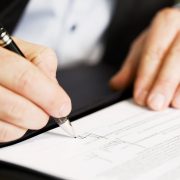Your trustee liabilities: are you aware of them?
This post is by Giles Ellis, Director at GECA Chartered Accountants based in Newmarket.

I meet many people who are trustees of other people’s trusts. Generally these trusteeships are taken on by well-meaning friends or family who have limited, if any, understanding of the obligations and even more importantly – the trustee liabilities.
Of more concern, many people are unsure if they are trustees. I often hear people say they were a trustee a while ago but unsure of the situation now. If this is you, make enquiries now to ascertain the situation.
If you are still a trustee, consider if the original reasons for doing this are still valid and ensure you understand the responsibilities and obligations of the trustee role. This is particularly relevant if the trust has taxable activities. Trustees have personal liability for any income tax or GST owed by the trust to the IRD.
Note these trustee liabilities are increasing under proposed new trust legislation. Recently trustee roles are more often being held by Professional Trustees to ensure the trust is administered correctly and is able to fulfil the purpose it was set up for.
What to do if you want to resign?
So you have reviewed your situation and decided you no longer want to be a trustee. First review the terms of the trust deed and confirm trustees can retire at their discretion. Where the deed of trust does not expressly permit retirement the Trustee Act 1956 should be referred to.
Any objections?
As the retirement of a trustee can be expensive (especially where the trust has significant property investments, all of which will have to be transferred from the retiring trustee to the remaining or new trustees) the other trustee(s) may not be agreeable to the retirement. There might also be opposition to retirement where the trustees have liability concerns.
Where retirement cannot be achieved by agreement, a trustee who wishes to retire can give notice of the intention to retire to any co-trustees and any person with the power of appointment and removal of trustees and pass the trust’s accounts to the Registrar of the High Court or can ask the High Court to appoint a new trustee. This may seem an extreme response. However, given that a trustee remains personally liable until the trustee has retired this course or action may be preferable than to remaining liable both jointly with the other trustees and personally.
Provided the retirement is by agreement, a deed of retirement should be prepared and signed by all trustees and witnessed.
Following up
Once the trustee has retired, the trust’s property must be legally transferred to the continuing and/or new trustees. All the trustees must sign the transfer documents for land and shares and any other property owned by the trustees.
Check that the Companies Office records have been updated to show transfers of shares and ask to see a copy of the certificate of title for any land to show that the trustee is no longer listed as a registered proprietor.
A trustee will remain liable for GST until the IRD has been notified in writing that the person is no longer a trustee. Retirement will not avoid any liability incurred before the trustee’s retirement. Ensure the IRD receive written notification of your resignation as soon as possible.
Any signing authorities with banks or other institution need to be updated.
The retiring trustee should also advise the trust’s beneficiaries, investment adviser, accountant, lawyer and any other party the trust has had dealings with that the trustee has retired.
The best thing to protect yourself as a trustee is to have all your trust accounting and tax matters reviewed to both ensure you are protected and that there is a formal schedule of communication with respect to keeping IRD informed of any changes. Call us at GECA today on 0800 758 766.






